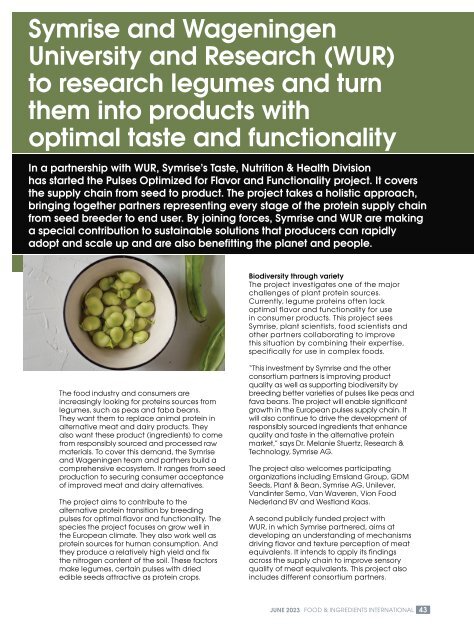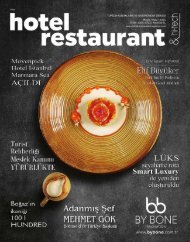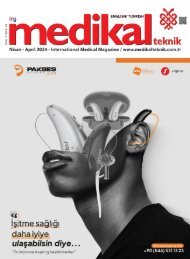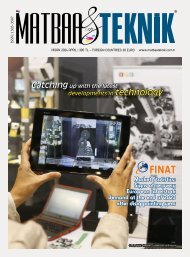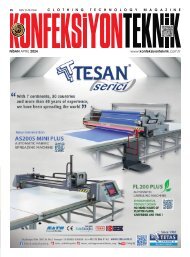Food & Ingredients June 2023
Create successful ePaper yourself
Turn your PDF publications into a flip-book with our unique Google optimized e-Paper software.
Symrise and Wageningen<br />
University and Research (WUR)<br />
to research legumes and turn<br />
them into products with<br />
optimal taste and functionality<br />
In a partnership with WUR, Symrise’s Taste, Nutrition & Health Division<br />
has started the Pulses Optimized for Flavor and Functionality project. It covers<br />
the supply chain from seed to product. The project takes a holistic approach,<br />
bringing together partners representing every stage of the protein supply chain<br />
from seed breeder to end user. By joining forces, Symrise and WUR are making<br />
a special contribution to sustainable solutions that producers can rapidly<br />
adopt and scale up and are also benefitting the planet and people.<br />
Biodiversity through variety<br />
The project investigates one of the major<br />
challenges of plant protein sources.<br />
Currently, legume proteins often lack<br />
optimal flavor and functionality for use<br />
in consumer products. This project sees<br />
Symrise, plant scientists, food scientists and<br />
other partners collaborating to improve<br />
this situation by combining their expertise,<br />
specifically for use in complex foods.<br />
The food industry and consumers are<br />
increasingly looking for proteins sources from<br />
legumes, such as peas and faba beans.<br />
They want them to replace animal protein in<br />
alternative meat and dairy products. They<br />
also want these product (ingredients) to come<br />
from responsibly sourced and processed raw<br />
materials. To cover this demand, the Symrise<br />
and Wageningen team and partners build a<br />
comprehensive ecosystem. It ranges from seed<br />
production to securing consumer acceptance<br />
of improved meat and dairy alternatives.<br />
The project aims to contribute to the<br />
alternative protein transition by breeding<br />
pulses for optimal flavor and functionality. The<br />
species the project focuses on grow well in<br />
the European climate. They also work well as<br />
protein sources for human consumption. And<br />
they produce a relatively high yield and fix<br />
the nitrogen content of the soil. These factors<br />
make legumes, certain pulses with dried<br />
edible seeds attractive as protein crops.<br />
“This investment by Symrise and the other<br />
consortium partners is improving product<br />
quality as well as supporting biodiversity by<br />
breeding better varieties of pulses like peas and<br />
fava beans. The project will enable significant<br />
growth in the European pulses supply chain. It<br />
will also continue to drive the development of<br />
responsibly sourced ingredients that enhance<br />
quality and taste in the alternative protein<br />
market,” says Dr. Melanie Stuertz, Research &<br />
Technology, Symrise AG.<br />
The project also welcomes participating<br />
organizations including Emsland Group, GDM<br />
Seeds, Plant & Bean, Symrise AG, Unilever,<br />
Vandinter Semo, Van Waveren, Vion <strong>Food</strong><br />
Nederland BV and Westland Kaas.<br />
A second publicly funded project with<br />
WUR, in which Symrise partnered, aims at<br />
developing an understanding of mechanisms<br />
driving flavor and texture perception of meat<br />
equivalents. It intends to apply its findings<br />
across the supply chain to improve sensory<br />
quality of meat equivalents. This project also<br />
includes different consortium partners.<br />
JUNE <strong>2023</strong> FOOD & INGREDIENTS INTERNATIONAL<br />
43


